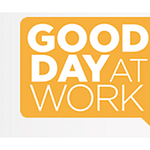In recent years, I have been acting as a mentor/consultant with SMEs on the employee engagement agenda to enable them to improve their business in any number of ways. The model of engagement I selected was the one developed in the North West and used very successfully at Leyland Trucks and Runshaw College. Since then it has been used extensively across a range of businesses from county councils to hospitals, from large companies to smaller concerns.
The attraction to me of this particular approach (aka Team Enterprise) is that it focusses on management conscious and unconscious behaviours to create a supportive culture, allowing engagement to blossom. Using its five basic constructs of re-imagining Communication, Recognition, Values (expressed as Behaviours), Management Style and Continuous Improvement, it can quickly, safely and economically be introduced to often very good effect. By targeting the decision makers and influencers first, the necessary culture and associated disciplines can be swiftly adopted.
The key determinant of its success, and indeed of any variation of employee engagement, is the willingness and enthusiasm of the senior decision makers to take on board this new paradigm. The greater the ownership from the top, the better the outcome. So naturally over the years I have gravitated to the most senior influencers. Being naturally of an inquisitive nature, my modus operandi is to understand the motivation of these people in detail before I start. And frankly I have often been shocked by what I have found.
It would appear that the emotional and physical pressures, alongside the sheer workloads these people endure, have engendered a distinctly unhealthy environment which has wreaked its toll on those running these organisations. Antacids, blood pressure medication, sleeping pills and antidepressants seem commonplace. Dietary habits are dictated by time pressures and convenience so both the content of the food they eat and the way that they eat it strike me as being very harmful. And the long hours seemingly preclude an adequate work: life balance, including getting the necessary exercise and me-time.
Coronavirus has brought home the inadequacies in the general population in terms of particularly metabolic health. The statistics coming out of the States on levels of obesity, diabetes, heart disease and so on are frightening. And we in Britain appear to be mirroring their profile. If we couple that background with the additional pressures noted above on the major decision makers in SMEs, we can perhaps begin to understand what is going on.
As a lifelong devotee of fitness and healthy nutrition, it fascinates me that the keystones to success in both the areas of personal well being and organisational health through engagement are very similar. We appreciate the difficulty faced by a traditional manager in moving away from a tried and tested directive style to one based on constant motivation. Likewise, anyone who has been on a diet or attempted to give up smoking or alcohol will understand the challenges involved.
The solution is in acquiring new habits, doing the new routines routinely. As Aristotle said “We are what we repeatedly do: excellence is not an act but a habit”. There is little doubt that a leader subsumed by the pressures we talked about earlier, and suffering poor physical and mental health, will find it difficult to cope with the changes needed to promote this new cultural imperative.
This is very much early days in my pursuit of Healthy Leaders but the response so far has been quite staggering. Whilst not yet a statistical relevant sample size, the immediate demand seems to be at this stage more about solving the issues of individual health through focusing on nutrition, mental health and physical health. Organisational health seems to be taking a back seat but perhaps we have to tick off one before the other.
Employee Engagement has not been as extensively adopted as we enthusiasts would have anticipated. Perhaps in many instances it is too big an immediate leap of faith with those already blighted by the pressures of business today. But the disciplines required by the personal approach will be those necessitated by the organisational one so we should regard the process as a continuum. Personal wellbeing followed by organisational wellbeing?
In any event the engagement fraternity can help enormously here by offering supportive and trusted networks, allowing people to discuss their challenges. Being a leader in an SME is often a lonely existence, and the opportunity to air their concerns will be very much valued.
Author Bio: Philip Dyer, Founder of Healthy Leaders, www.healthy-leaders.co.uk
Photo Credit: congerdesign from Pixabay




